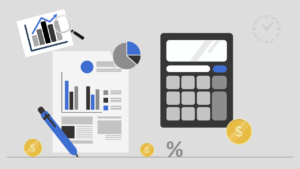
Are you interested in starting your own ecommerce business? How about finally starting to see growth in your ecommerce company after weeks, months, or years of hard work? Regardless of where you’re at in your ecommerce journey, it’s important to understand how to set yourself up for long-term success.
One of the fundamentals of laying a solid foundation is accounting. Staying on top of managing your financial data makes you better prepared when tax time rolls around and gives you important insights when making decisions.
In this article, we’ll provide you with five ecommerce accounting best practices to help you pave the way for business success. Keep in mind that this article isn’t a substitute for tailored advice from an ecommerce CPA. If you still have questions, sign up for ecommerce accounting services from an ecommerce accountant near you.
Utilize Accounting Software
Starting out, you might not need a Shopify CPA or an Amazon FBA CPA if you invest in the right accounting software. Accounting software is crucial for your ecommerce business to have access to real-time data, record all transactions, and generate internal reports.
When choosing an ecommerce software program, be sure that you can link all of your storefronts and bank accounts to seamlessly flow transactions into your ledgers. This can save you the time of manual data entry and increase the accuracy of your financials.
Even if you do find the perfect accounting software, remember that it’s always best to have an ecommerce CPA double check the accuracy of your transactions and reports, especially as you begin to grow.
Track Cash Flow
Ecommerce businesses have two types of cash flow transactions: inflows and outflows. Inflows represent money coming into your company, such as sales or customer payments. On the contrary, outflows involve money leaving your business, like paying Amazon fees or shipping costs.
Tracking the cash flow of your company helps you manage your money and reduces your risk of overdrafting your account. Low cash flow levels can result in defaulting on inventory payments, staff wages, and other expenses. It’s very difficult to improve the financial health of your business without tracking cash flow.
Record All Expenses
Bookkeeping for Amazon and Shopify businesses involves more than just tracking platform expenses. In fact, you will have other costs to run your business, like insurance, website expenses, office wages, bank charges, and rent.
Verifying that you are recording all applicable business expenses lowers your taxable income and gives you transparency into your actual profitability. Managing your expenses also involves having proper proof in the event of an audit, such as receipts and invoices. Working with a Shopify accountant or Amazon tax accountant ensures you are recording all available expenses.
Manage Inventory
Inventory management is one of the most important accounting tasks in your ecommerce business. Running out of inventory leads to lost revenue and can hurt your brand image. Creating a well-managed inventory function relies on having complete transparency into amounts on hand, which products are selling, and the optimal time to reorder.
For example, it wouldn’t make much sense to reorder a product that hasn’t been selling well over the past few months. Blindly placing orders results in lost profit and excess inventory on hand. When it comes to ecommerce inventory management, consider utilizing specialized inventory tracking software.
Separate Bank Accounts
As an ecommerce seller, you are running a business. This means that only business transactions should be run through your bank account. If you haven’t already done so, open a separate business bank account. This account should only contain business transactions.
Separating your business and personal bank accounts is not only beneficial from a tax perspective, but it is also essential from a liability standpoint. If your ecommerce business were to get sued and the courts see the comingling of personal and business transactions, you might pierce your liability shield. This means your personal assets might become up for grabs to satisfy a judgment.
If you do run a personal transaction through your business account, you will need to make sure it’s properly recorded on your financials. An accountant for Amazon sellers or a Shopify CPA can help you with the proper reporting.
Summary
Ecommerce accounting will look different for each business. Nevertheless, setting a strong accounting foundation allows your ecommerce business to scale with ease, report accurate tax returns, and maximize insights.
For personalized ecommerce accounting services and advice, reach out to one of our team members. We want to be your trusted ecommerce CPA!







